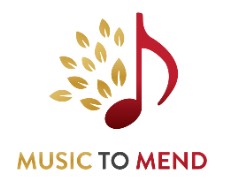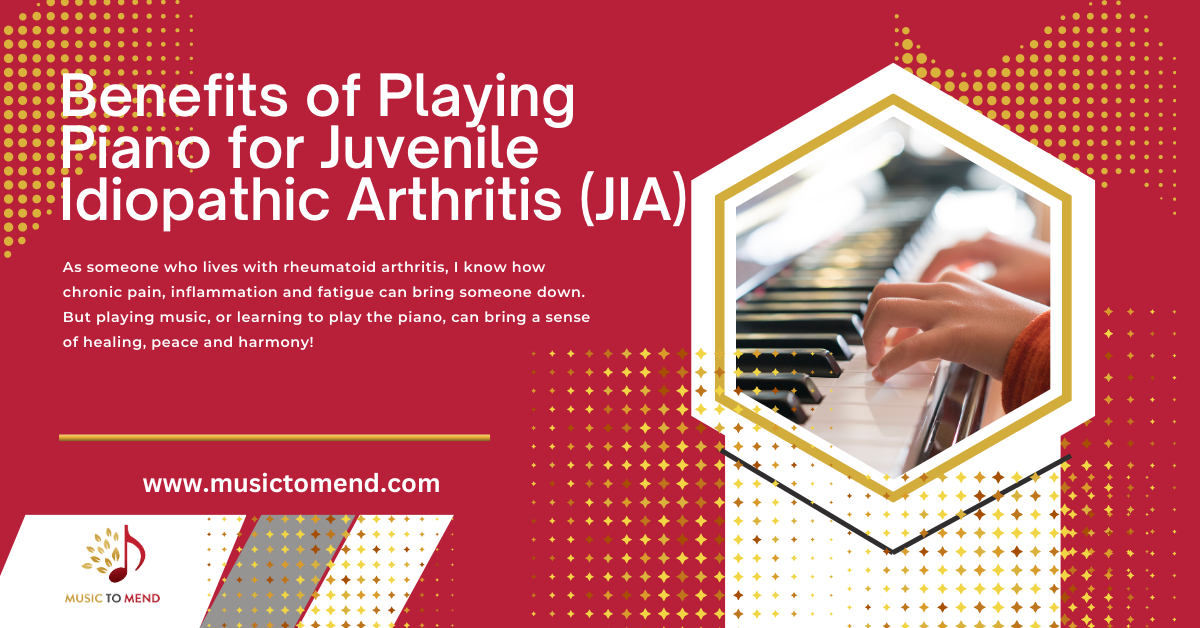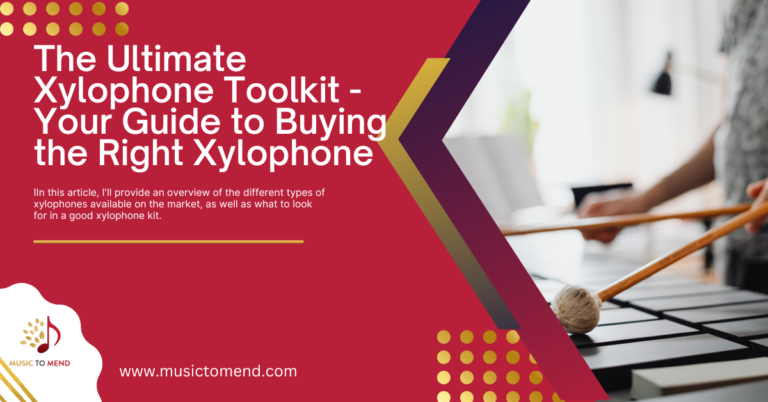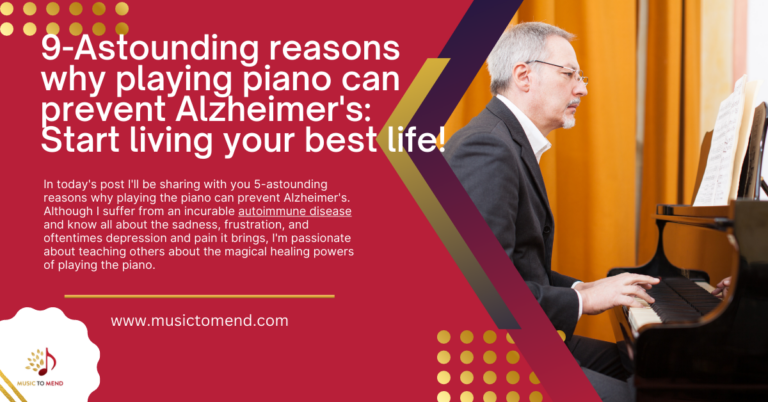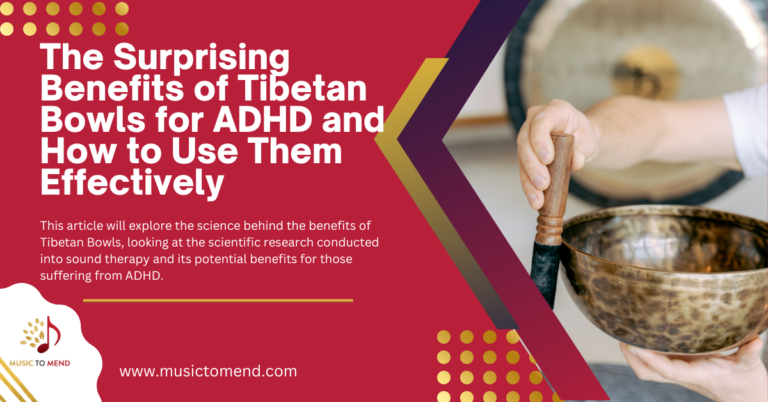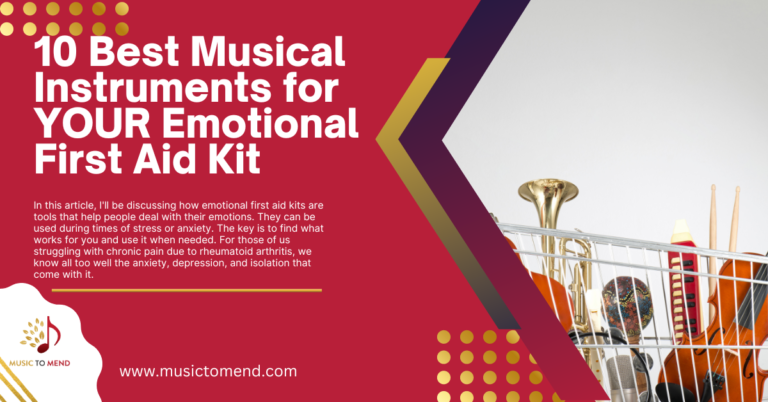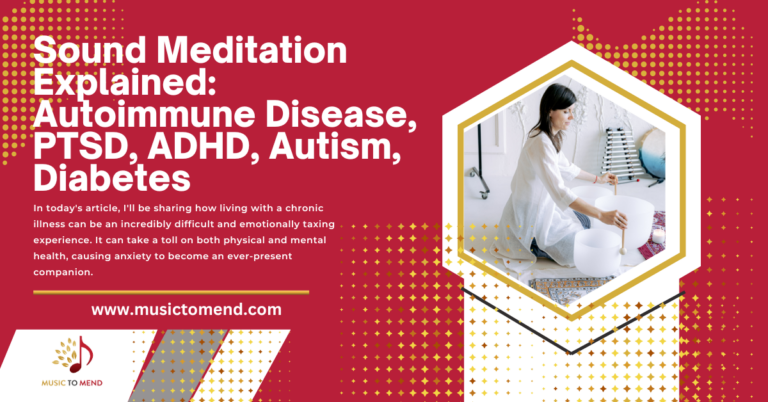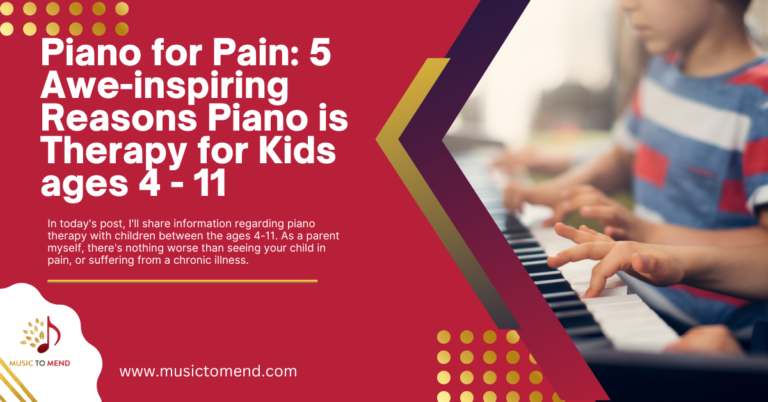Benefits of Playing Piano for Juvenile Idiopathic Arthritis (JIA): Health and Wellness Journey
What is Juvenile Idiopathic Arthritis
Juvenile Idiopathic Arthritis (JIA), also known as juvenile chronic arthritis, is a type of autoimmune disorder that affects the joints of children and adolescents. It is an inflammatory condition that causes joint pain, swelling and stiffness. It can affect any joint in the body, including the wrists, ankles, knees, hips and shoulders. JIA can be classified into seven different types depending on the severity of symptoms and how long they last. Treatment usually involves medications to reduce inflammation and physical therapy to improve mobility.
As someone who lives with rheumatoid arthritis, I know how chronic pain, inflammation and fatigue can bring someone down. But playing music, or learning to play the piano, can bring a sense of healing, peace and harmony!

Bokeh piano
How Playing the Piano Can Help JIA Patients Manage Symptoms & Improve Quality of Life
Playing the piano can be an effective form of therapy for juvenile idiopathic arthritis (JIA) patients. Music therapy has been proven to be a powerful tool for managing symptoms such as pain and fatigue, as well as improving quality of life. Piano playing in particular is beneficial because it encourages fine motor skills, cognitive development, and emotional regulation. Additionally, it can provide a sense of accomplishment and joy that can help JIA patients feel empowered in their own lives. Through regular practice, patients can gain an improved sense of self-worth while also managing their symptoms more effectively.
The Physical & Psychological Benefits Of Learning To Play The Piano
Learning to play the piano can be a great way to improve physical and psychological well-being. Playing the piano has been shown to have numerous physical benefits, from improved hand-eye coordination to increased lung capacity. Additionally, playing the piano can also provide psychological benefits, such as increased self-confidence and improved mental focus. Furthermore, for those suffering from Juvenile Idiopathic Arthritis (JIA), learning to play the piano can provide an important outlet for musical expression. In this article, we will explore the physical and psychological benefits of learning to play the piano.
Benefits of Playing the Piano for People with Joint Pain
Playing the piano is an excellent way to reduce joint pain and inflammation. It is a low-impact exercise that helps to improve range of motion, flexibility, and strength in the joints. It can also help to reduce stress levels, improve mood, and increase overall well-being.
The physical benefits of playing the piano for people with joint pain include improved posture, increased hand-eye coordination and fine motor skills, improved circulation and better muscle tone. Additionally, playing the piano can help to reduce joint inflammation by encouraging blood flow to affected areas. This can help to reduce swelling and stiffness in the joints while providing a sense of relaxation.
Exploring Alternative and Complementary Therapy Options for Juvenile Arthiritis Patients
Is juvenile idiopathic arthritis treatable? That answer is no! Traditional treatments for JRA include medications such as non-steroidal anti-inflammatory drugs (NSAIDs) and corticosteroids. However, there are also alternative and complementary therapies that may be beneficial for JRA patients. These therapies may include music therapy, physical therapy, acupuncture, massage therapy, dietary changes, herbal remedies, and even yoga or meditation.
Conclusion
Juvenile Arthritis is a type of arthritis that affects children under the age of 16. It is characterized by inflammation and pain in the affected joints. Music Therapy has been found to be an effective way to help manage Juvenile Arthritis and reduce its symptoms. Music Therapy involves using music as a tool to improve physical, emotional, cognitive and social functioning. It helps reduce stress, improve mood and increase relaxation which can help reduce pain associated with Juvenile Arthritis. Music therapy can also help children build self-esteem and self-confidence which can be beneficial for those living with the condition.
I hope you found this article helpful.
Until next time, happy piano-playing!
Bea
